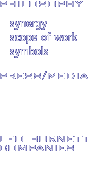|
Rapid Technology Growth in the Southwest:
Austin, Texas Named Silicon Hills
Another Silicon Region Defined
Today Texas leads the United States in the high-technology sector, producing more semiconductors than the infamous Silicon Valley and ranking second in high-technology employment, after California. Austin, referred to as "Silicon Hills," is rapidly becoming the rising star of Texas’ technology sector. In a recent Fortune survey (November 23, 1998 issue), Austin was voted "Best City for Business" and applauded for its remarkable rate of growth. Austin has doubled its size every 20 years for the past century.
Austin Stakes Its Claim As a High-Technology Leader
Over recent years, Austin has transformed itself from a government and university town to a high-technology superstar. During this time, Austin, already a mainstay for branches of large out-of-state technology giants such as Motorola and IBM, has achieved fast-paced growth from small and mid-sized technology firms.
Overall Austin Industry Growth
- Of the roughly 58 publicly held companies in Austin, 32 have staged IPOs since 1994.
- Last year, eight percent of all new jobs in the state of Texas were created in the Austin-San Marcos area (Austin’s population represents 5.5 percent of the state’s population).
- Outpacing all other Texas cities, Austin’s growth rate is expected to expand by two percent in 1999, compared with the national average of 0.9 percent in 1999.
An Attractive High-Technology Industry
- Some of the nation’s leading high-technology companies are operating in Austin, including IBM, Dell Computers, Motorola, Advanced Micro Devices, Trilogy, Texas Instruments, Samsung and Tandem.
- Austin offers a spectrum that creates an outstanding business climate and high quality of life.
- A business start-up friendly environment has helped to attract a diverse group of companies to Austin.
- A KPMG Peat Marwick report indicated that Austin has roughly 200 semiconductor manufacturers and suppliers, 260 personal computer manufacturers or suppliers and more than 800 software firms.
- Along with the growth of technology companies in Austin, the city has experienced growth in the numbers of integrated marketing and advertising agencies as well.
- Corporations can reduce costs by setting up operations in Austin. Apple Computers and Lotus Development Corporation reported overall cost savings of 20-25 percent when the companies moved operations to Austin.
- Austin’s small- to medium-sized technology firms are creating employment opportunities faster than the semiconductor giants, and are expected to overtake them as the main job-creating bodies by the start of the 21st century.
- University of Texas, Austin, a major high-technology research site, supplies thousands of technology-related degree graduates each year who want to work in the Austin area.
- Austin’s high-technology work force is expected to grow by more than 55,000 employees over the next two years. High-technology employment has nearly tripled over the last ten years.
- Austin’s software expertise centers on multimedia, semiconductors, education and databases.
Venture Capital Support
- Venture capital has been a catalyst in Austin’s high-technology start up boom.
- Fifteen companies in Austin, mostly high-technology firms, received a record $66 million in venture investments from across the U.S. in 1996, according to a Price Waterhouse survey. This amount is a 62 percent increase from the 1995 figure of $40 million.
- Austin Ventures, a local venture-capital firm, financed as many Austin-based high-tech companies in 1996 as in the previous five years.
Quality of Life
- Austin’s high-technology companies have been able to attract technology professionals from competing high-technology centers. Austin’s success is due to a number of factors, which include an excellent education system, a low cost of living, high quality of life, strong community leadership and the migration of high-technology companies.
- With the lowest unemployment rate in the state, Austin’s personal income rate is on a rapid rise.
Next Article
Press Archive
|

